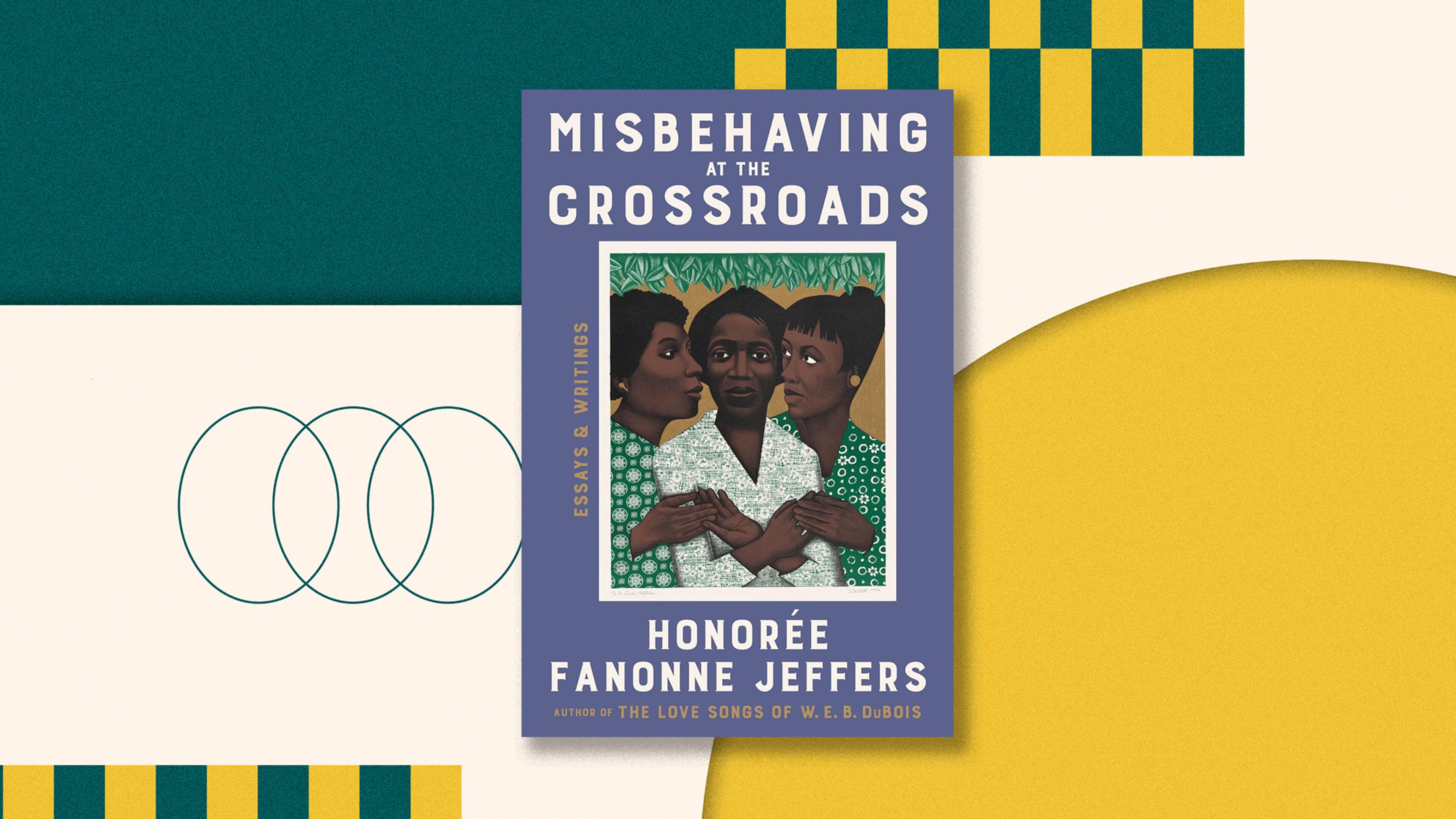‘Misbehaving at the Crossroads’ a poetic meditation on intersectionality

Honorée Fanonne Jeffers is an award-winning poet, novelist and tenured professor who readily admits she is acquisitive, especially when it concerns her family.
“I’m greedy for what I’m owed: my entire history,” she writes in “Misbehaving at the Crossroads: Essays & Writings,” a collection of 42 social, political and personal mediations and poems that provide fascinating insight into the author’s work and life.
Like many African Americans, the author of the 2021 National Book Award-longlisted novel “The Love Songs of W.E.B. Du Bois,” cannot trace her lineage back beyond 1870. In her essay “Paper Trail,” the author explains that before the Civil War, Georgia’s census didn’t record enslaved people by name but instead used identifiers such as age and gender.
Jeffers will never know which of the 134 enslaved African Americans listed on a Putnam County enslaver’s ledger are her earliest known ancestors, Clarissa and Richard Napier. Their names don’t appear until the first postwar census.
But she wants to make something clear. “When other Black folks and I write about early African Americans, we’re not writing our ancestors into the narrative of this country. We’ve already been here,” she reminds those who try to diminish the significance Africans played in the formation of America.
Using a method historians call “critical fabulation” to fill in the gaps in inconsistent recordkeeping, Jeffers employs fictionalized storytelling and speculative narration to give voice to those historically silenced — especially the women trafficked via the trans-Atlantic slave trade.
Jeffers draws significant strength from the females who came before her, both in her life and in her work. One of many nods to her unknown progenitors is the poem “Blues for the African Woman Whose Name Has Been Erased.” When the author writes, “We will sing her blues. We will chant rememory,” she isn’t merely paying homage. Jeffers is naming another literary mechanism used to infuse ignored history with texture and accessibility: Toni Morrison’s theory of “rememory.”
In a piece titled “Toni Morrison Did That” — an expanded version of a review originally published in the New York Times — Jeffers relays the story of the Nobel Prize winner’s unflappable response when challenged by a reporter about race. Revealing she, too, has been questioned for “creatively depicting Black people,” Jeffers rejects the notion that the “White point of view is the final authority of truth in history.” She relies on rememory, the practice of using “oral stories and undocumentable experiences such as ancestral dreams or visions passed down” to enhance her historical recollections.
In addition to using critical fabulation and rememory to flavor her fiction, Jeffers does plenty of factual research. A fair amount of what she discovered hit her in profound and lingering ways. In “Blues for Paradise,” an essay about the unexpected emotions she experienced while watching the movie “Black Panther,” the author reveals she encountered so many horrors while researching “The Age of Phillis” — her critically acclaimed book of poetry on 18th century poet Phillis Wheatley Peters — that she’s had recurring nightmares for over a decade. In another piece, she observes, “when it comes to the United States, the actual history of my ancestors is a trigger warning.”
Regardless of which narrative technique Jeffers chooses to employ, a lack of genealogical archives hasn’t impeded her ability to compose vibrant and palpable stories. As the essays in “Misbehaving at the Crossroads” take an increasingly intimate dive into Jeffers’ background, those familiar with her fiction will recognize another mechanism she utilizes to bring her tales to life: drawing from her lived experiences.
In “Three Sisters: A Fairy Tale,” a story told in verse about how generational trauma manifests differently in her sisters, Jeffers discloses that she lost a sister to addiction, as did her main character, the resolute Ailey Pearl Garfield. Both Jeffers and Garfield are survivors of childhood sexual abuse and both struggle to find their place in the world of white academia. The similarities start there.
Jeffers’ eclectic collection covers a lot of terrain, from exploring her disappointment in the epistle “Very Real (Open) Letter to Mr. Barack Obama Concerning His Speech Accusing Black Men of Sexism Because Some Hadn’t Planned to Vote for Vice President Kamala Harris in the 2024 Election” to several rousing pieces unpacking Jeffers’ complex relationship with her mother. One consistent element that sparkles throughout is her poetic prose.
“I can bend a rhythm and make it holler,” she asserts about her own storytelling prowess in a powerful piece titled “Altar Call” that honors her matrilineal ancestors as she grapples to understand her own mother. With lines appearing throughout the collection like, “I haven’t yet learned how much weaker than a girl a woman can be. How silly I am to assume you are stronger than he,” regarding her parents’ separation, Jeffers’ ability to infuse words with emotion inspire more than a few goose bumps.
Honorée Fanonne Jeffers is at a crossroads, a place she describes as the intersection of difficulty and possibility, the location where trouble meets hope. Her literary achievements have already established her as a vital contributor to the contemporary canon. Jeffers’ intimate collection of musings and writings in “Misbehaving at the Crossroads” reveal there is no shortage of polarizing topics presently on her mind.
As she cogitates and intellectualizes matters like the incompatibility between marriage and feminism, or the failure of traditional feminism to address the needs of women from marginalized communities, or the hypocrisy of society promoting respectability politics in the 21st century, one can only anticipate how the crossroads of her imagination and lived experiences will shape her next work of fiction.
NONFICTION
“Misbehaving at the Crossroads: Essays & Writings”
by Honorée Fanonne Jeffers
Harper
368 pages, $30
AUTHOR EVENT
Honorée Fanonne Jeffers. In conversation with Jericho Brown. 6:30 p.m. July 8. Free, donation appreciated. Presented by Charis Books & More at Auburn Avenue Research Library, 101 Auburn Ave. NE, Atlanta. 404-524-0304, www.charisbooksandmore.com


